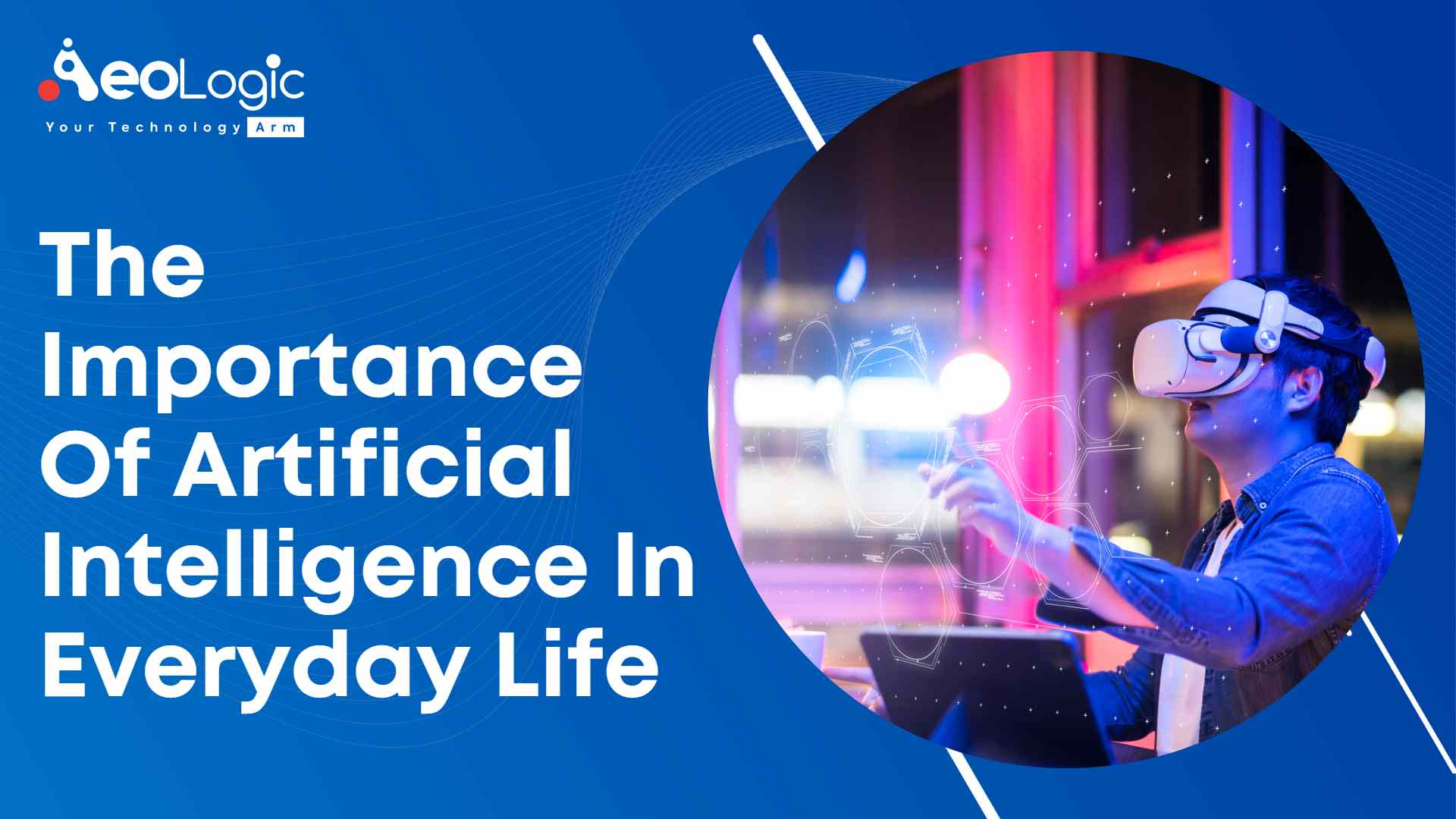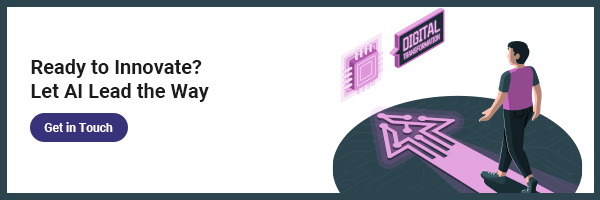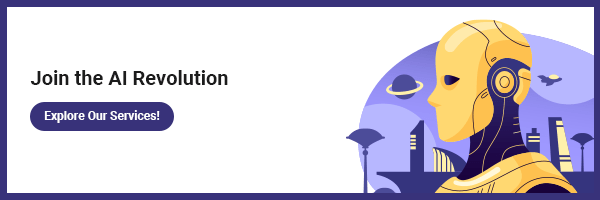Artificial Intelligence (AI) has been transforming various industries and aspects of modern life, from healthcare to entertainment, and from transportation to education. The impact of AI is vast, and it has become an essential part of our everyday lives. This article will discuss the importance of AI in everyday life, how it affects us, and the benefits it provides.
Statistics of Artificial Intelligence in Everyday Life
In our everyday lives, Artificial Intelligence (AI) silently plays a significant role, from personalized recommendations on online platforms to voice assistants simplifying daily tasks. Understanding the statistics of AI’s impact empowers us to appreciate the technology shaping our daily experiences.
| Statistics of Artificial Intelligence in Everyday Life |
|---|
| According to a 2021 survey, 73% of consumers are already using some form of AI in their daily lives. |
| The global AI market size is expected to reach USD 266.92 billion by 2027, growing at a CAGR of 33.2% from 2020 to 2027. |
| The healthcare industry is expected to be one of the largest adopters of AI, with an estimated market size of USD 8.9 billion by 2022. |
| AI-powered virtual assistants are becoming increasingly popular, with the global market for smart speakers expected to reach USD 35.5 billion by 2025. |
| AI is being used in finance for fraud detection, with 75% of banks planning to use AI in the next three years. |
| AI is also being used in agriculture for crop monitoring, yield prediction, and soil analysis, with the global market for AI in agriculture expected to reach USD 1.4 billion by 2025. |
| In 2020, the COVID-19 pandemic accelerated the adoption of AI in areas such as telemedicine and remote work. |
| The use of AI in transportation is expected to increase, with the market size for AI in transportation expected to reach USD 12.36 billion by 2025. |
| AI is also being used in education for personalized learning and student assessment. |
| The use of AI in customer service is expected to grow, with the market size for AI in customer service expected to reach USD 13.9 billion by 2025. |
AI is the development of computer systems that can perform tasks that typically require human intelligence. Technology has advanced significantly in recent years, allowing machines to learn from data, identify patterns, and make decisions independently. AI applications are used to enhance efficiency, increase productivity, and reduce human error in various fields. We will explore how AI is used in our daily lives, its advantages, and the future of this technology.
Checkout our trending blog: The Use of Artificial Intelligence in Quality Assurance
Artificial Intelligence in Healthcare
AI has revolutionized the healthcare industry by providing more accurate diagnoses, developing more effective treatments, and improving patient outcomes. Machine learning algorithms can analyze large datasets of medical records, images, and genetic information to identify patterns and predict diseases. This technology can also monitor patients in real-time, alerting healthcare professionals to any changes in vital signs or symptoms. AI is also being used to develop new drugs and personalized treatments, leading to more effective and targeted care.
Artificial Intelligence in Entertainment
The entertainment industry has also been impacted by AI, with streaming services using recommendation algorithms to suggest content to users. AI is also used to create personalized playlists, identify trends, and optimize user experiences. In the gaming industry, AI is used to create more realistic characters and environments, and to develop more challenging opponents.
For You: Top AI Tools You Must Try Out Today
Artificial Intelligence in Transportation
AI has transformed the transportation industry, making it safer, more efficient, and environmentally friendly. Self-driving cars use machine learning algorithms to analyze data from sensors and cameras to navigate roads, avoid obstacles, and make decisions. This technology can reduce accidents, decrease traffic congestion, and lower emissions. AI is also used in logistics, with intelligent systems optimizing routes, predicting demand, and reducing delivery times.
Artificial Intelligence in Education
AI is transforming the education industry, making it more accessible, personalized, and efficient. Intelligent tutoring systems can provide individualized instruction, adapt to student needs, and offer feedback. A variety of new tools have popped up that help students write essays more easily, smoothing out the learning journey and boosting their academic success. This technology can also identify learning gaps and suggest resources to fill them. AI is also used in e-learning platforms, offering personalized content, automated grading, and advanced analytics.
Artificial Intelligence in Smart Homes
AI is being used to create smarter homes, with intelligent systems controlling various devices, from lighting to heating and cooling. These systems can learn user preferences, adapt to changes, and optimize energy consumption. AI-powered virtual assistants, such as Amazon Alexa and Google Home, can respond to voice commands, schedule appointments, and order groceries.
Must Read Blog: The Role of AI in Education And Learning: Just Promises Or Revolution
Artificial Intelligence in Cybersecurity
AI is playing a crucial role in cybersecurity, detecting and preventing cyberattacks in real-time. Machine learning algorithms can analyze network traffic, identify anomalies, and block threats. This technology can also monitor social media, identify fake news, and prevent phishing attacks.
Benefits of Using Artificial Intelligence in Daily Life
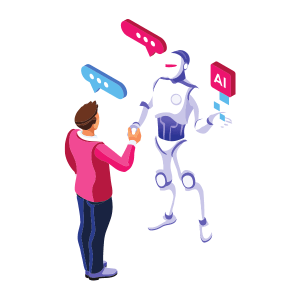
(AI) is increasingly a part of our everyday lives, even if we don’t always notice it. Here are some ways in which AI is making a positive impact:
Personal Assistants: AI-powered digital assistants on smartphones like Siri, Google Assistant, or Bixby can help manage daily tasks, set reminders, provide information, send texts, and more.
Online Shopping: AI is used in online shopping platforms to provide personalized recommendations based on your browsing and buying history.
Navigation and Traffic: AI is used in apps like Google Maps and Waze to analyze real-time traffic data and provide the fastest routes.
Email Filtering: AI helps filter out spam emails, categorizing incoming emails, and even suggesting quick replies in some email platforms.
Security and Fraud Detection: AI can identify patterns of fraudulent activity in banking and online transactions. It can also enhance home security systems through facial recognition technology.
Entertainment: Streaming services like Netflix and Spotify use AI to recommend shows, movies, or music based on users’ previous viewing or listening habits.
Learning and Education: AI is used in education through personalized learning platforms, which adapt to a student’s strengths and weaknesses. It’s also used to automate grading, freeing up time for teachers to spend with students.
Social Media: AI algorithms on social media platforms analyze user behavior to curate a personalized feed and suggest relevant content or friends.
Automated Customer Service: AI chatbots can answer common questions instantly at any time of the day, improving customer service response times.
Smart Appliances: AI is making household chores easier with smart appliances like robot vacuum cleaners, washing machines, or refrigerators that can monitor and automate tasks.
AI’s ability to analyze vast amounts of data and learn from it enables these applications and many more, making our lives easier, more convenient, and more productive.
Do you know ? The Future Scope of SEO with Machine Learning and AI
How is Artificial Intelligence Improving Social Media?
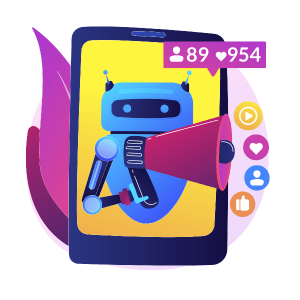
Artificial Intelligence (AI) has brought numerous changes and improvements to the social media landscape. Here are some ways AI is shaping and improving social media:
- Personalization and Targeting: AI algorithms analyze user behavior, interests, and connections to deliver personalized content and advertisements. This increases the relevance of the content for each user and helps businesses target their ads more effectively.
- Image and Video Recognition: AI technologies like computer vision are used to analyze and interpret images and videos. For instance, Facebook uses image recognition technology to identify and tag people in photos.
- Predictive Analysis: AI is used to predict future user behavior based on past patterns. This can be used for various purposes like identifying potential customer leads, predicting trending topics, or anticipating user needs for customer service.
- Chatbots and Customer Service: Custom AI-powered chatbots can provide instant responses to common customer inquiries on social media, improving customer service efficiency and effectiveness.
- Content Generation: AI can generate short pieces of content, like tweets or social media updates, reducing the workload for social media managers.
- Sentiment Analysis: AI can analyze social media posts and comments to determine user sentiment towards a brand, product, or service. This provides valuable feedback for businesses.
- Fake News and Misinformation Detection: AI algorithms can help detect and filter out fake news, spam, or harmful content, making social media platforms safer and more reliable.
- Trending Topic Detection: AI can rapidly analyze huge amounts of data to detect trending topics or emerging stories. This can help users and businesses stay ahead of trends and join relevant conversations.
- User Retention and Engagement: AI can help improve user retention by providing personalized recommendations, identifying user churn patterns, and driving proactive engagements.
- Influencer Identification: AI can help brands identify potential influencer partnerships by analyzing social media behaviors, followers’ count, engagement rates, and more.
AI allows social media platforms to better understand and serve their users, creates a more personalized user experience, and offers businesses more powerful tools for reaching and understanding their customers. As AI technology continues to improve, its impact on social media is likely to grow even more significant.
Future of AI
Artificial Intelligence (AI) is getting better and smarter, but it also brings some worries. People are concerned about privacy, fairness, and jobs being replaced by machines.
At the same time, AI can also help us solve big problems in the world. It can help us fight climate change, make sure everyone has enough to eat, and get medical care to the people who need it.
We’re not sure exactly what will happen with AI in the future, but one thing is clear: AI is becoming a bigger part of our everyday lives. It will continue to get smarter and be used in more places. As AI grows, we need to make sure it’s used in a way that is good for everyone.
Also Read: The Role of AI in Shaping the Future of Education Industry
Final Words
AI is transforming various aspects of modern life, from healthcare to entertainment, and from transportation to education. The technology offers many benefits, such as increased efficiency, improved accuracy, and enhanced personalization. While there are ethical concerns, the potential for AI to address global challenges cannot be ignored. As AI continues to advance, it is essential to consider its impact on society and ensure its development is guided by values and principles that prioritize the well-being of humans.
Feel free to schedule a free 60-minute consultation with one of our experts. We’ll talk about the opportunities and address any concerns you may have. Our consultants will suggest solutions and outline how they can be implemented. Let’s talk!
Aeologic Technologies is a great place to start!
FAQs on Artificial Intelligence in Everyday Life
How does AI impact job opportunities?
While AI may automate some tasks, it also creates new job opportunities in fields such as data science and AI development.
Is AI a threat to human jobs?
While AI may automate some tasks, it is unlikely to replace human jobs entirely. Instead, it will likely transform job roles and create new opportunities.

